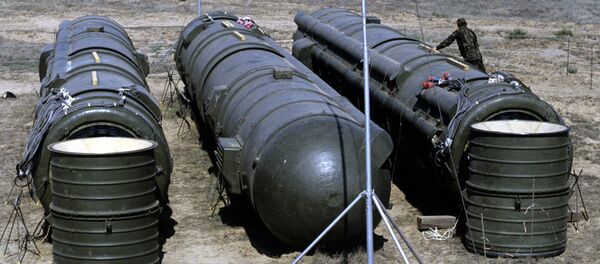The bill in the House of Representatives will point out that while the new missiles would be conventional, they, along with nuclear missiles, would still be considered banned under the nuclear disarmament agreement, according to Politico.
Advocates of the bill believe that the move would be a response to Russia's alleged violations of the bilateral accord.
Legal experts criticized the possible move, saying that Congress will exceed its power as it can only ratify the international treaties while talks on agreements and withdrawal from should be decided by the president.
In June, Cotton presented a bill proposing that the alleged Russian violation of the INF Treaty be announced and that consideration be made for transferring missile technologies to US allies. The Democrats, meanwhile, proposed that further sanctions be considered. A similar document was proposed by Rogers.
Russian Foreign Minister Sergei Lavrov has repeatedly said that the Russian leadership had reaffirmed its commitment to the INF Treaty, and that Moscow has never violated the agreement. The minister pointed out that Washington had not provided any data that can be verified, adding that Russia had serious questions concerning US compliance with the INF Treaty.
The INF Treaty, signed in 1987, significantly reduced the arsenal of non-strategic missiles available to the United States and Russia by prohibiting all nuclear and conventional missiles and their launchers with range between 310 and 3,420 miles. The United States and Russia have repeatedly accused each other of violating the INF treaty.




